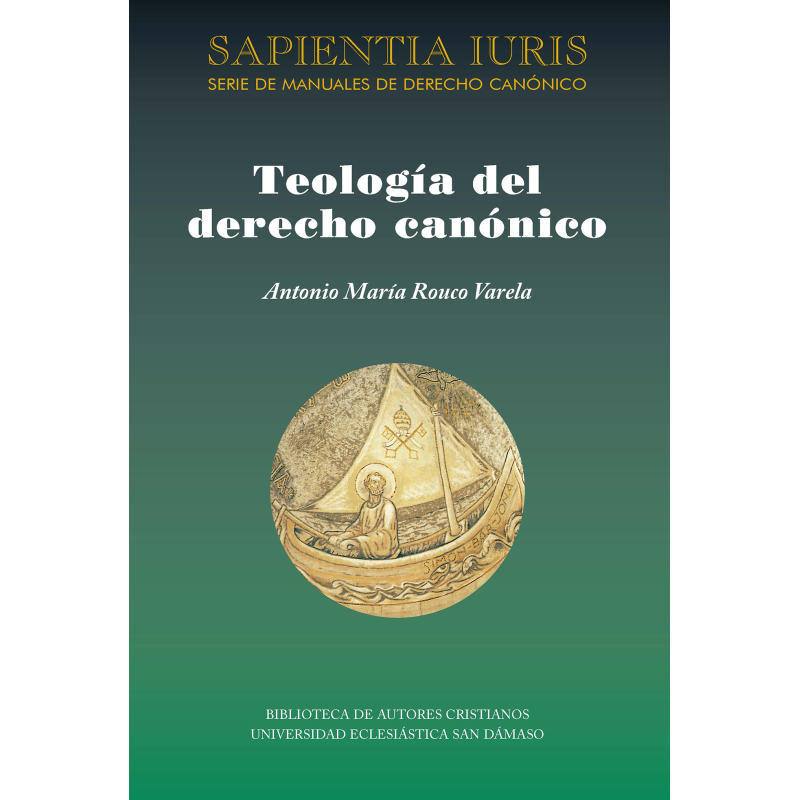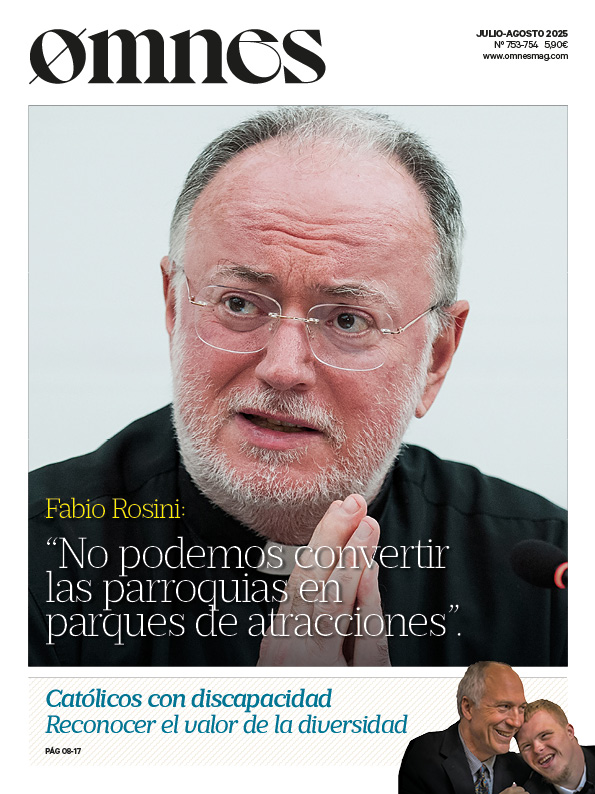Cardinal Archbishop Emeritus of Madrid, Antonio María Rouco Varela (Villalba, Lugo, 1936), has developed throughout his life an intense and fruitful pastoral work in various dioceses.
We now wish to refer to his academic life, where he has had a great dedication to canon law and, especially, to a special and certainly novel branch of it, called "Theology of Canon Law". A pioneering subject in the canonistics and truly consistent with the doctrine and spirit of the Second Vatican Council and its application to the problems and difficulties of contemporary Christianity.
It is logical that, in the development of canon law throughout its existence and in its application to the life of the Church, of the faithful and of ecclesiastical institutions, novel questions and intricate juridical problems have arisen, since the Church has a divine origin, but is constituted by human beings with rights and obligations.
Dimensions of the Church
Precisely, as St. Augustine affirmed, the fact that the Church is part of civil society -since she lives and acts in it- and, at the same time, belongs to the world of God -by her ends and her way of acting, received from Jesus Christ- is one of her essential characteristics. The Church, therefore, must combine the natural and the spiritual, the theological and the juridical, under the perspective of Christian anthropology and history where the salvation of the human race takes place.
In this interesting work, Rouco Varela will bring up important theological issues for a solid foundation of canon law, such as the concept of the Church, the dignity of the human person as the image and likeness of God, and the relationships within the Church as the family of God and as an institution (p. 33).
At the same time, Cardinal Rouco recalls that in the face of the provocation of modernity (p. 116) represented by juridical positivism in civil law, canon law is not reduced to juridical practice in relations within and outside it and in the exercise of the rights and obligations of Christians.
A theology that makes law
Professor Rouco Varela has collected, therefore, in this volume of the BAC, within the collection of manuals of canon law, "Sapientia iuris", various research articles that he had published on the theology of canon law in various specialized journals both in Spain and Europe.
Thus, throughout this work, our professor will illuminate with great skill various juridical questions that have arisen throughout history to show how, through the contribution of theology, a true and profound juridical resolution could be found. Rouco Varela will make explicit many times throughout this manual an affirmation of the canonist Mörsdorf: "canon law is a theological discipline with a juridical method" (p. 140).
Let us now point out a juridical question resolved by theology so that the reader can glimpse how the theology of canon law has come to resolve, in practice and theory, questions of canon law.
An example
We take it from Rouco Varela himself, when he affirms that one of the great lights of the Council contained in the Apostolic Constitutions "....Lumen Gentium"(Rome, 21.XI.1964) and "Gaudium et spes" (Rome, 7.XII.1965), is the concept of the Church of communion. This aspect is developed extensively in the Catechism of the Catholic Church, in the subsequent magisterium of the Church and, especially, in the theological works of the Holy Father Benedict XVI.
It can truly be said that the 1983 Code of Canon Law is the juridical expression of the theology of communion of the Second Vatican Council: "The Church is in Christ as a sacrament or sign and instrument of intimate union with God and of the unity of the whole human race" (LG n. 1).
Likewise, in the proem of "Gaudium et spes" it is stated: "The Christian community is made up of men and women who, gathered together in Christ, are guided by the Holy Spirit on their pilgrimage towards the Father's kingdom and have received the good news of salvation in order to communicate it to all" (GS, n. 1).
Finally, let us note that the Catechism of the Catholic Church once again reflects the ecclesiology of communion: "In the one family of God, all the children of God and members of the same family in Christ, by uniting ourselves in mutual love and in the same praise of the Most Holy Trinity, we are responding to the intimate vocation" (n. 959).
In basic questions such as the one we have just raised, the one true divine and human reality of the Church and of her faithful as human persons endowed with the dignity of having been called by baptism to be children of God and of the Church are reflected in unity (77).
Precisely, the Church of communion will overcome theologically the vision of Pius XII in his Encyclical "Mystici corporis" (Rome, 12.VI.1943), because for Canon Law the theology of communion is easier to express in the juridical order and will emphasize a relationship of the human person with God and with the authority of the Church.
It is of great historical interest to recall with Rouco Varela the post-conciliar times as moments of "hopeful ecclesial springtime" and also as "widespread indiscipline", especially in some parts of Europe, which is why the promulgation of the 1983 Code of Canon Law came at a providential moment when St. John Paul II was applying the true Second Vatican Council in the universal Church through his writings, his government and his travels (144). Thus Rouco reminds us of the words of Mörsdorf: "Canon law is 'ordenatio fidei'" (147)....
The theology of canon law









